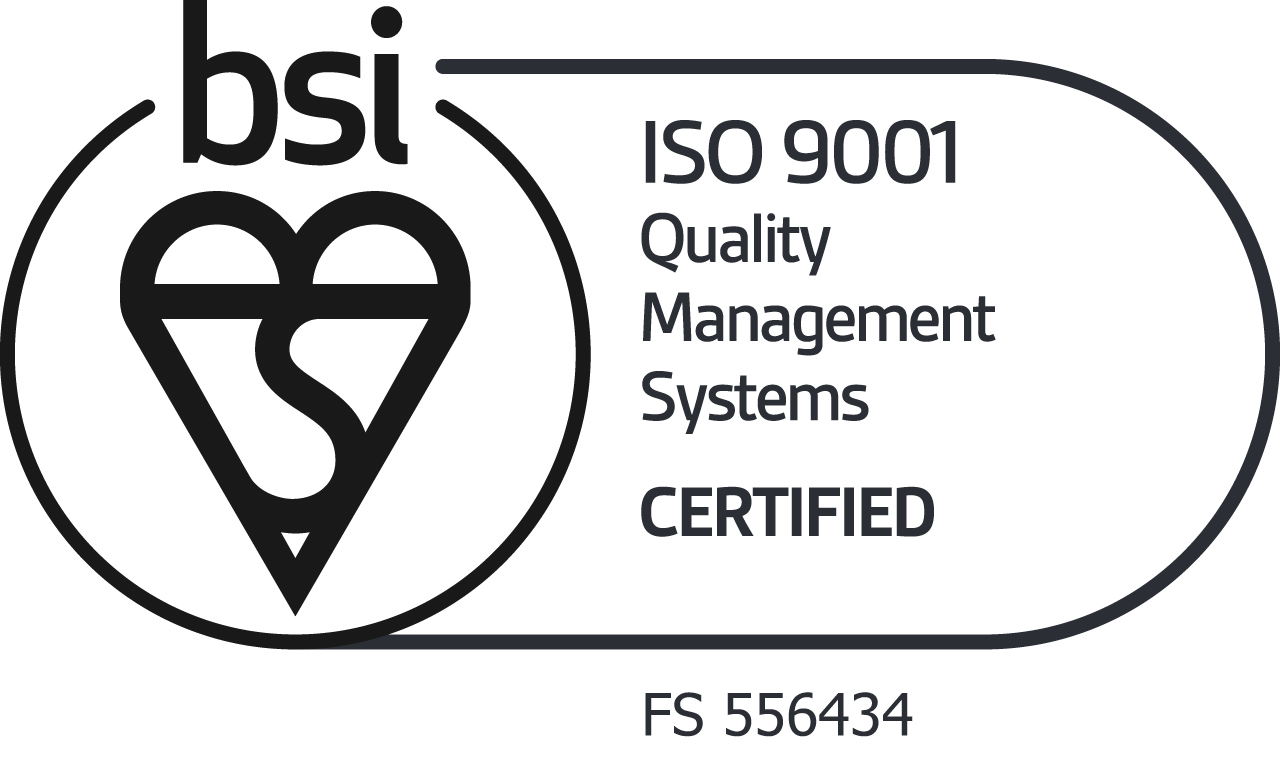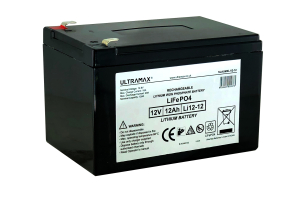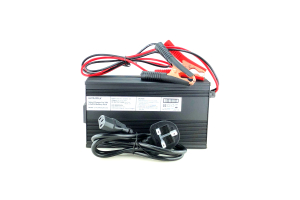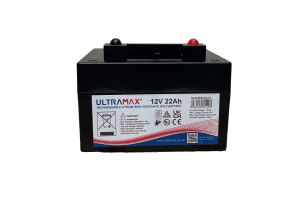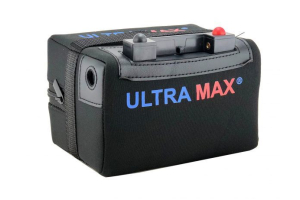The Ultimate Guide to Choosing the Perfect Battery for Your Push Mower
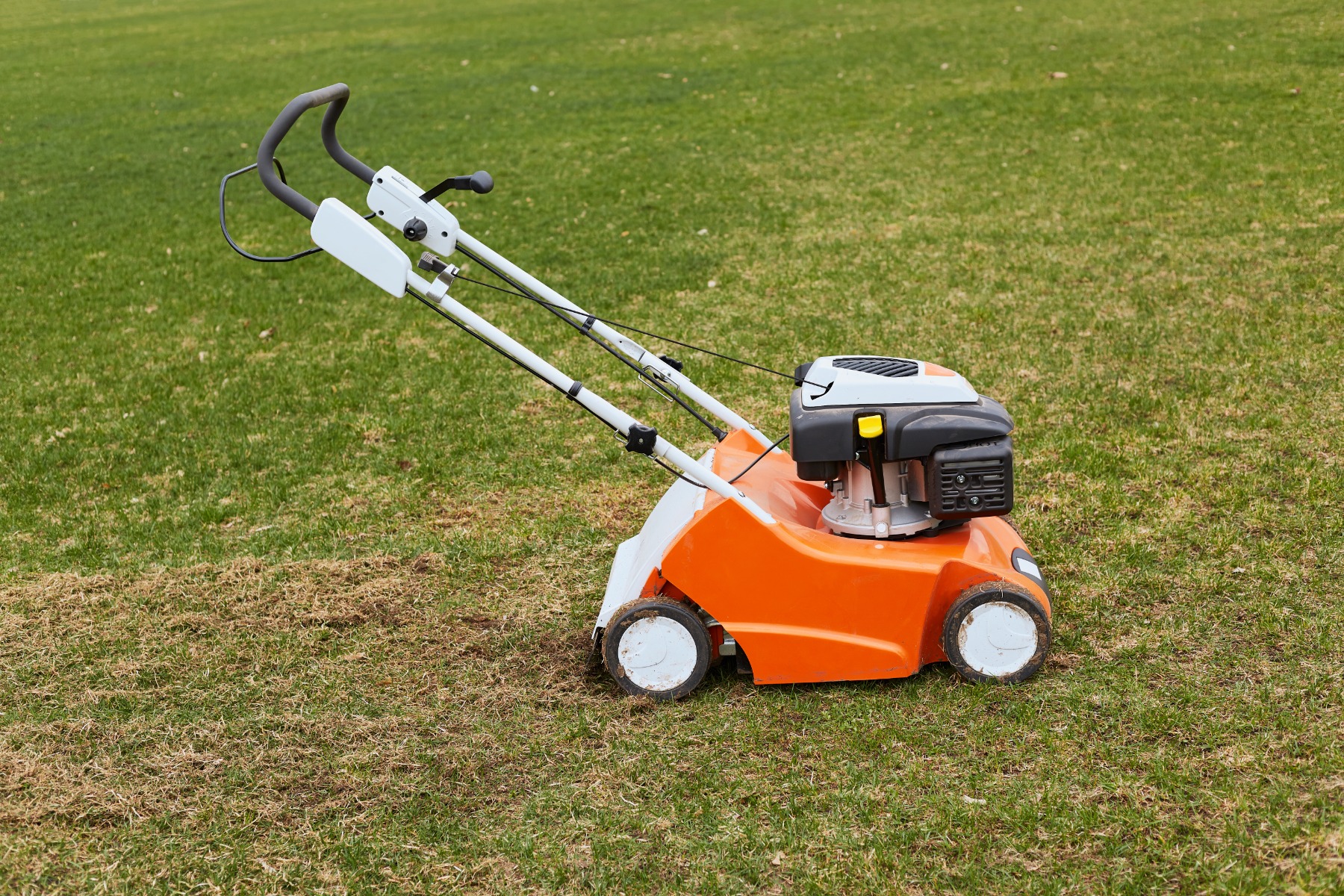
The Ultimate Guide to Choosing the Perfect Battery for Your Push Mower
Are you tired of dealing with the noise, fumes, and hassle of a traditional gas-powered push mower? Switching to a battery-powered option might be the perfect solution for you. But with so many options available, how do you choose the perfect battery for your push mower? In this ultimate guide, we will walk you through everything you need to know to make an informed decision. From understanding the different types of batteries to considering factors like power, runtime, and charging time, we'll cover it all.
Not all batteries are created equal, and finding the right one for your specific needs is crucial. Whether you have a small yard or a large property, our guide will help you navigate through the vast selection of batteries and identify the one that suits you best. Say goodbye to the exhaust fumes and the maintenance headaches of a gas-powered mower. With the right battery, you can enjoy a quieter and cleaner mowing experience without compromising on performance. So, let's dive in and find the perfect battery for your push mower.
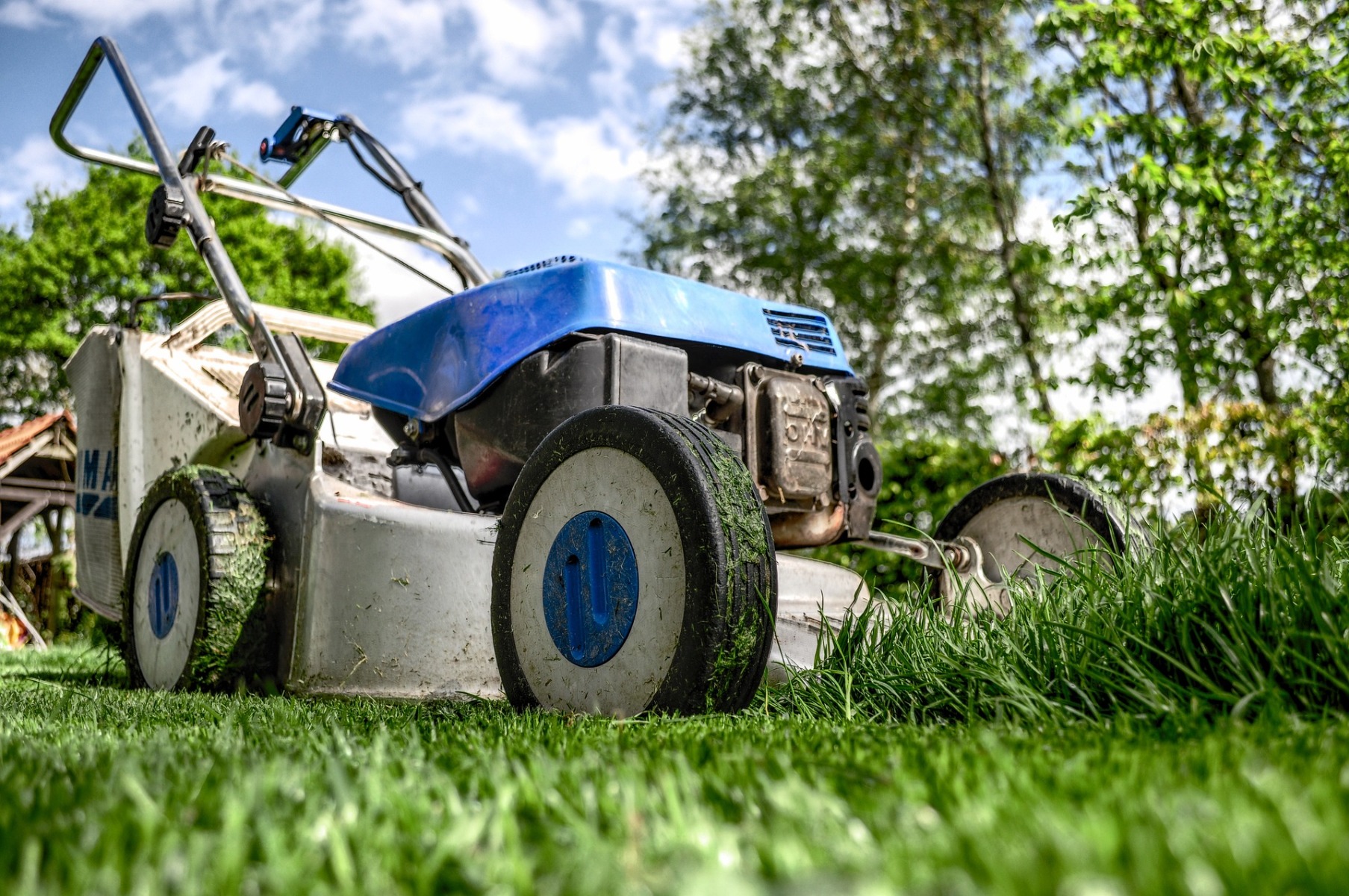
Importance of choosing the right battery for your push mower
When it comes to maintaining your lawn, the push mower is an essential tool. However, the traditional gas-powered mowers can be a hassle to maintain, with their noisy engines, fumes, and the need for regular refuelling. Switching to a battery-powered push mower can be a game-changer, providing a quieter, cleaner, and more convenient mowing experience.
But choosing the right battery for your push mower is crucial. The wrong battery can lead to poor performance, short runtime, and even compatibility issues with your mower. Investing in the right battery can ensure that your push mower operates at its best, delivering the power and runtime you need to tackle your lawn with ease.
By understanding the different types of batteries available and the factors to consider when making your selection, you can make an informed decision that will enhance your mowing experience and provide long-lasting reliability. Whether you have a small yard or a sprawling property, the right battery can make all the difference in the efficiency and enjoyment of your lawn care routine.
Understanding the different types of batteries available
When it comes to battery-powered push mowers, there are several types of batteries to choose from, each with its unique characteristics and advantages. The most common types are lithium-ion (Li-ion), lead-acid, and nickel-cadmium (Ni-Cd) batteries.
Lithium-ion batteries have become increasingly popular in recent years due to their high energy density, long runtime, and low maintenance requirements. These batteries are lightweight, compact, and offer impressive power output, making them a popular choice for push mowers. They also have a longer lifespan compared to other battery types, typically lasting for several years with proper care and maintenance. An example of it is https://batterymasters.co.uk/ultramax-li100-12din-din-base-12v-100ah-lifepo4-battery-4000-cycles.html
Lead-acid batteries, on the other hand, are known for their reliability and affordability. They are heavier than lithium-ion batteries, but they can provide consistent power output and are often more budget-friendly. These batteries are a good option for push mowers, especially for homeowners with smaller yards or less demanding mowing needs.
Nickel-cadmium batteries were once a common choice for power tools and lawn equipment, but they have largely been replaced by the more advanced lithium-ion technology. Ni-Cd batteries can be a viable option for some push mowers, but they tend to have a shorter runtime and may be more susceptible to the "memory effect," where the battery loses its ability to hold a full charge over time.
Factors to consider when choosing a battery for your push mower
When selecting the perfect battery for your push mower, there are several key factors to consider to ensure you make the best choice for your needs and budget.
Power and runtime: One of the most important factors is the battery's power output and runtime. You'll want a battery that can provide sufficient power to handle the demands of your lawn, whether it's a small, manicured yard or a larger, more rugged property. Look for batteries with high amp-hour (Ah) ratings, as this will indicate the battery's capacity and runtime.
Charging time: Another crucial factor is the battery's charging time. You don't want to be waiting hours for your battery to recharge, especially if you have a larger lawn that requires multiple mowing sessions. Look for batteries with fast-charging capabilities, which can significantly reduce the time needed to get your mower back up and running.
Compatibility: Ensuring that the battery is compatible with your specific push mower model is essential. Check the manufacturer's recommendations and specifications to ensure a perfect fit. Incompatible batteries can lead to performance issues, damage to your mower, or even safety hazards.
Durability and lifespan: The durability and lifespan of the battery are also important considerations. Look for batteries with robust construction and a long warranty, as this can indicate the manufacturer's confidence in the product's quality and longevity. A well-made battery can provide years of reliable service, saving you from the hassle and expense of frequent replacements.
Noise and vibration: While battery-powered push mowers are generally quieter than their gas-powered counterparts, the battery can still contribute to noise and vibration levels. Consider the noise and vibration specifications of the battery to ensure a comfortable and peaceful mowing experience.
By carefully evaluating these factors, you can find the perfect battery that will not only meet the demands of your lawn but also provide a reliable, efficient, and enjoyable mowing experience for years to come.
Battery capacity and runtime: What you need to know
When it comes to choosing the right battery for your push mower, the capacity and runtime are two of the most crucial factors to consider. Understanding these specifications can help you make an informed decision and ensure that your mower has the power and endurance to tackle your lawn with ease.
Battery capacity is typically measured in amp-hours (Ah) or watt-hours (Wh), and it represents the amount of energy the battery can store and deliver. The higher the Ah or Wh rating, the more runtime you can expect from your push mower. For example, a battery with a 4Ah rating will generally provide longer runtime than a 2Ah battery, all other factors being equal.
Runtime, on the other hand, is the measure of how long the battery can power your push mower before needing to be recharged. This is influenced by factors such as the battery's capacity, the power requirements of your mower, and the terrain and conditions of your lawn. A battery with a higher runtime can enable you to mow larger areas without having to stop and recharge, improving the efficiency and convenience of your lawn care routine.
When evaluating battery capacity and runtime, it's important to consider your specific mowing needs. If you have a small to medium-sized yard, a battery with a lower capacity and runtime may be sufficient. However, if you have a larger property or a more demanding lawn, you'll want to opt for a battery with higher capacity and runtime to ensure you can complete your mowing tasks without interruption.
Checking compatibility: Ensuring the battery fits your push mower
Ensuring that the battery you choose is compatible with your push mower is essential to ensure optimal performance and avoid any potential issues. Incompatible batteries can lead to problems such as poor power delivery, reduced runtime, or even damage to your mower's electrical system.
To ensure compatibility, start by checking the manufacturer's recommendations for your specific push mower model. This information is typically found in the owner's manual or on the manufacturer's website. Pay close attention to the voltage, amp-hour (Ah) rating, and physical dimensions of the recommended batteries to ensure a perfect fit.
It's also important to consider the battery's connection type, as some push mowers may require a specific type of battery connector or mounting system. Carefully inspect your mower's battery compartment and ensure that the battery you choose can be securely and easily installed without any modifications.
In addition to the physical compatibility, you'll also want to ensure that the battery's performance characteristics, such as power output and runtime, match the requirements of your push mower. This will help you avoid any issues with underpowered or overloaded batteries, which can lead to poor mowing performance or even premature battery failure.
Maintenance and care tips for your push mower battery
Proper maintenance and care are essential for ensuring the longevity and optimal performance of your push mower's battery. By following a few simple tips, you can extend the battery's lifespan and maintain its power output, ensuring a reliable and efficient mowing experience.
Proper storage: When not in use, store your battery in a cool, dry place. Avoid exposing it to extreme temperatures, as this can accelerate the degradation of the battery's internal components. If possible, store the battery at room temperature and away from direct sunlight or heat sources.
Regular charging: Ensure that you charge your battery fully before each use. Avoid letting the battery run completely flat, as this can cause permanent damage. If you're not going to use your push mower for an extended period, make sure to charge the battery to around 50% before storing it. This will help maintain the battery's health and prevent it from over-discharging.
Avoid overcharging: While it's important to charge the battery fully before use, be mindful of overcharging. Leaving the battery on the charger for extended periods after it has reached a full charge can lead to premature degradation and reduced lifespan. Follow the manufacturer's recommendations for charging times and unplug the charger once the battery is fully charged.
Clean and inspect: Regularly clean the battery terminals and connections to ensure a proper electrical connection. Use a clean, dry cloth to wipe away any dirt or corrosion. Inspect the battery for any signs of damage, such as cracks, swelling, or leaks, and replace it if necessary.
Proper disposal: When the time comes to replace your battery, make sure to dispose of the old one properly. Many municipalities and battery retailers offer recycling programs, which is the best way to ensure that the battery is disposed of safely and responsibly.
By following these maintenance and care tips, you can help extend the lifespan of your push mower's battery, ensuring consistent power and performance for years to come.
Reviews and recommendations: Finding the best battery for your push mower
To help you find the perfect battery for your push mower, it's essential to research and read reviews from both experts and fellow homeowners. This can provide valuable insights into the real-world performance, reliability, and overall satisfaction of different battery options.
One of the best places to start your research is by checking reviews on online retail platforms, such as Amazon or Home Depot. Here, you'll find a wealth of user feedback, ratings, and detailed product descriptions to help you narrow your choices. Pay close attention to factors like battery runtime, charging time, and overall customer satisfaction to understand each battery's strengths and weaknesses.
In addition to online reviews, you can also consult expert sources, such as consumer reports or specialized lawn and garden publications. These resources often provide in-depth, unbiased evaluations of various push mower batteries, taking into account factors like power output, durability, and value for money. This can be especially helpful if you're trying to decide between a few top contenders.
When reviewing the recommendations and feedback, keep in mind your specific mowing needs and the size of your lawn. A battery that may be perfect for a small, manicured yard may not be the best choice for a larger, more rugged property. By considering your unique requirements, you can make a more informed decision and ensure that the battery you choose will meet your expectations and provide a reliable, efficient mowing experience.
Cost considerations: Balancing quality and budget
When it comes to choosing the perfect battery for your push mower, cost is an important factor to consider. While it's tempting to go for the cheapest option, it's crucial to strike a balance between quality and budget to ensure you get the best value for your money.
Higher-priced batteries, often from well-known brands, tend to offer superior performance, longer runtime, and greater durability. These batteries may have a higher initial cost, but they can provide long-term savings by lasting for years and reducing the need for frequent replacements. Additionally, many premium batteries come with extended warranties, giving you added peace of mind and protection.
On the other hand, more budget-friendly batteries may have lower power output, shorter runtime, and a shorter lifespan. While these options can be tempting for homeowners on a tight budget, they may not provide the same level of performance and reliability as their higher-priced counterparts. In the long run, the cost savings may be offset by the need to replace the battery more often or deal with reduced mowing efficiency.
When evaluating the cost of a battery, consider not only the initial purchase price but also the long-term ownership costs. Factor in factors such as runtime, charging time, and expected lifespan to determine the true value of the battery. In some cases, spending a little more upfront may be worth it if the battery provides better performance and lasts significantly longer.
Conclusion: Make an informed decision for your push mower battery
Choosing the perfect battery for your push mower is a crucial decision that can have a significant impact on the efficiency, convenience, and enjoyment of your lawn care routine. By understanding the different types of batteries available, considering the key factors that influence their performance, and researching reviews and recommendations, you can make an informed choice that will meet your specific needs and provide long-lasting value.
Whether you opt for a high-capacity lithium-ion battery, a reliable lead-acid option, or a more budget-friendly alternative, the right battery can transform your mowing experience. By prioritizing factors like power, runtime, charging time, and compatibility, you can ensure that your push mower operates at its best, delivering the power and endurance you need to tackle your lawn with ease.
Remember to also consider the long-term ownership costs and maintenance requirements of the battery, as these can play a significant role in the overall value and convenience of your investment. By taking the time to make an informed decision, you can enjoy the benefits of a quieter, cleaner, and more efficient mowing experience for years to come.
So, take the time to explore your options, read reviews, and consider your specific needs and budget. With the right battery, you can say goodbye to the hassle of gas-powered mowers and embrace the convenience and performance of a battery-powered push mower that will keep your lawn looking its best.
Our suggestions
Here are some of the suggestions from our expert team at Battery Masters:
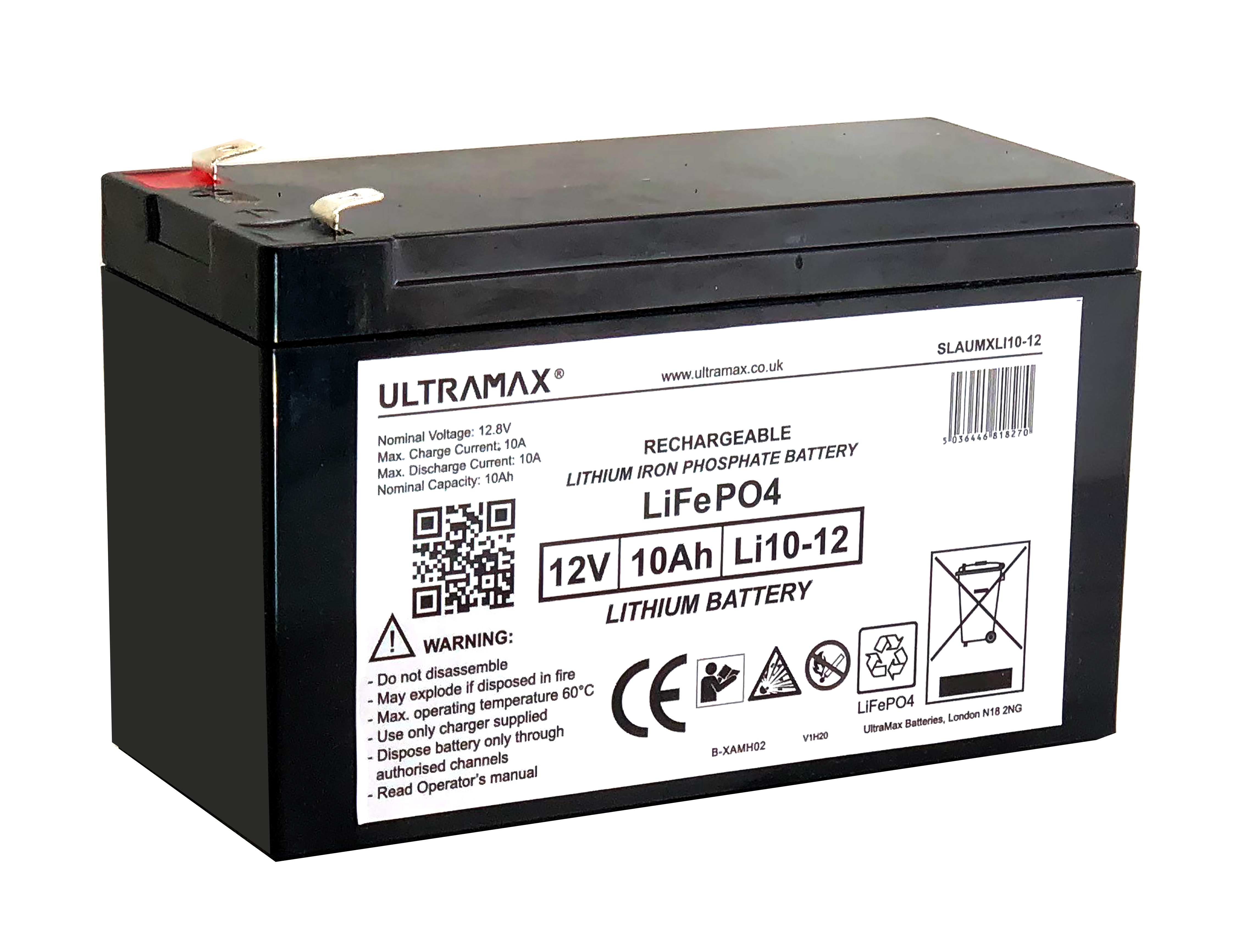
Explore our range of UltraMax LiFePO4 Batteries!




-
 UltraMax 12V 100Ah DIN AGM Batteries for Caravans/MotorhomesSpecial Price £141.99 Regular Price £179.98
UltraMax 12V 100Ah DIN AGM Batteries for Caravans/MotorhomesSpecial Price £141.99 Regular Price £179.98
3 Item(s)

